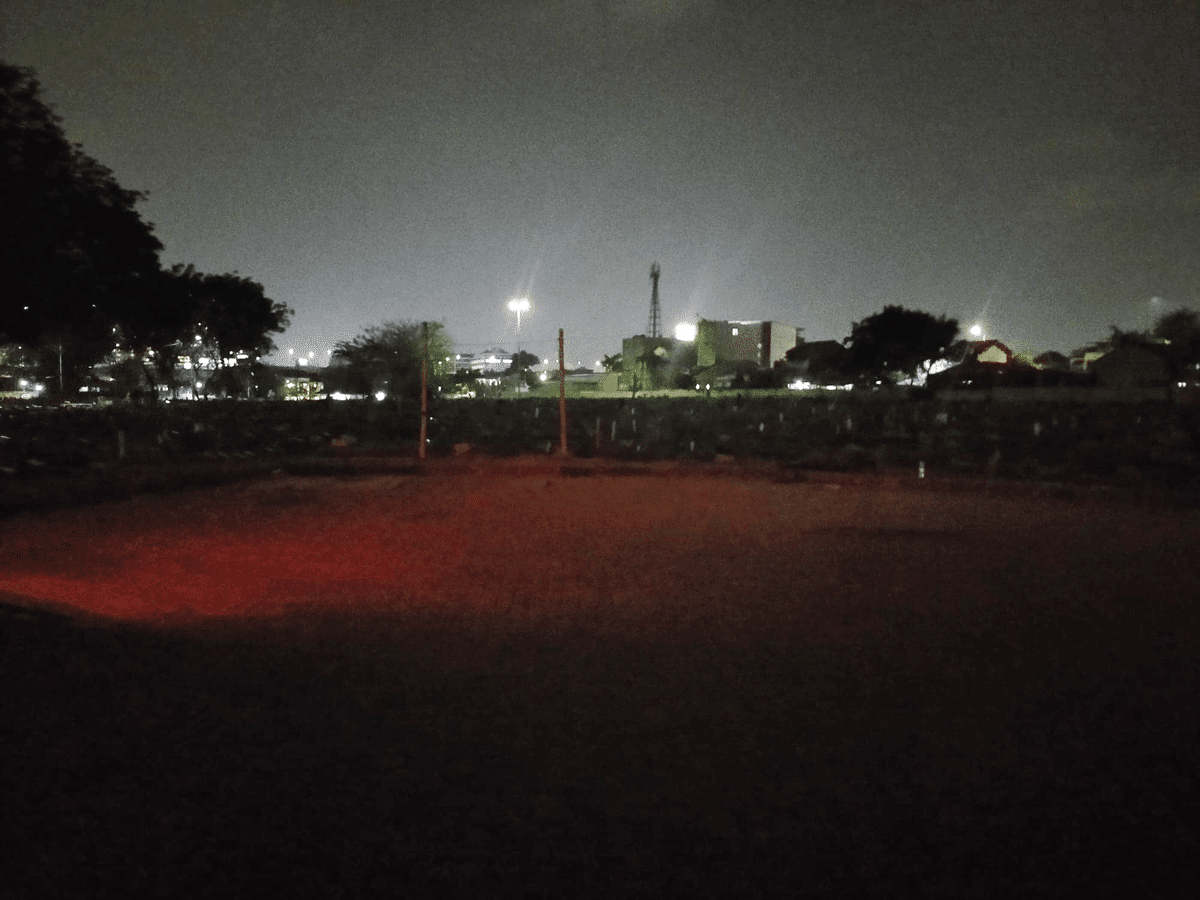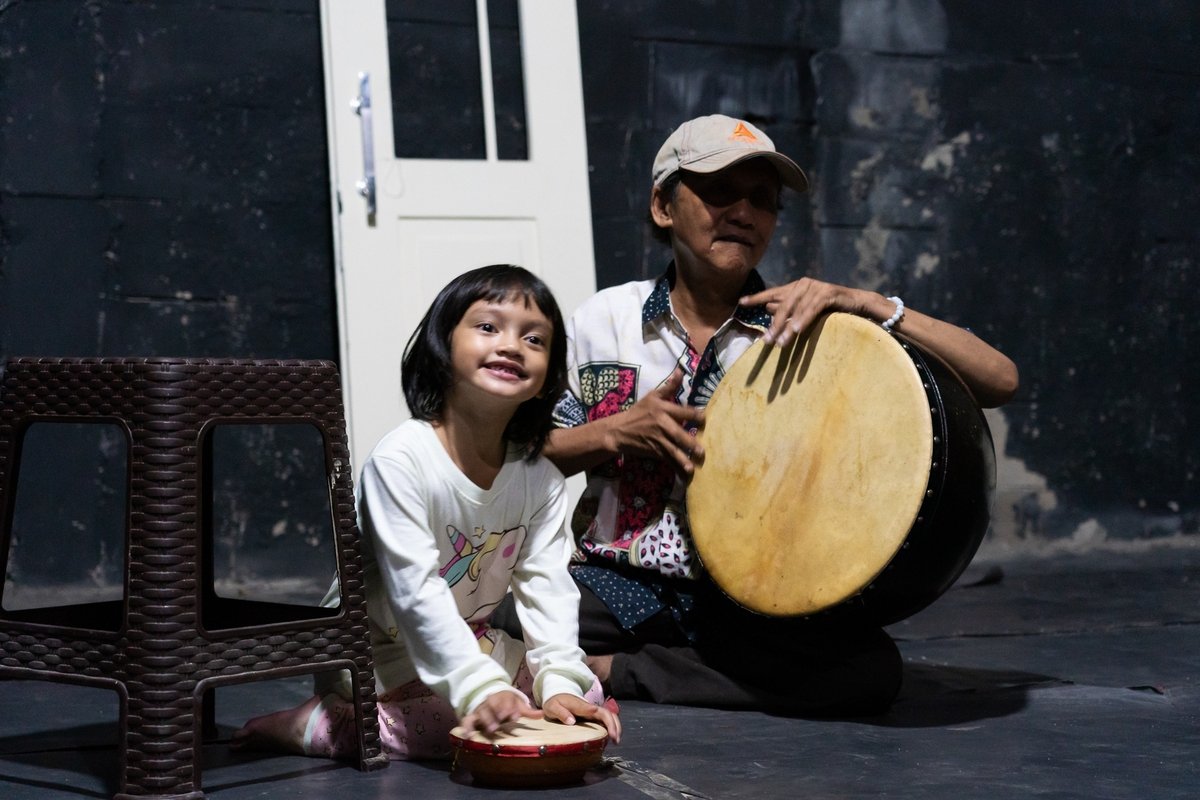
Research Trip in Indonesia: Teater Kubur
Translation: Yui Kajita
This is a series of travel logs sharing our experiences during the group research trip to Indonesia in September 2022, penned by Yukari Sakata, a member of the Asian art project TERASIA: Theatre for Traveling in the Age of Isolation.
<<Read from the beginning
Theatre in a graveyard?
One of the essential destinations of our research trip was Teater Kubur (graveyard theatre). Before our visit, I’d heard on the grapevine that there was a theatre in a graveyard in Jakarta, and that it’s a base for a group of performers with high levels of physical ability. But I had no idea what to expect before I went there. A theatre in a graveyard? How does that work?

I could hear people’s voices from inside the houses.
A theatre company established in 1983
Meet Dindon-san, leader of Teater Kubur and a theatre director. He founded the theatre troupe in 1983, and now they are approaching their 40th anniversary. As soon as I shook his hand, I understood that this man, who looked light with a small build, had always been the mainstay of the group. He has, in fact, trained countless people in younger generations. It was the first time we were able to meet in person, rather than on Zoom.

Teater Kubur is busy with their training from 8 PM to midnight every day. It’s not only the members that gather there, but also professional performers from outside their troupe. Even when they have no upcoming performances scheduled—even when they had barely any public performances due to the Covid-19 pandemic—they’ve never missed their training sessions, devoted to continuing their practice as usual.
It really was a graveyard theatre!

On sunny days, true to their name, Teater Kubur uses this open area at the center of the graveyard for their training. When it rains, the ground gets too wet there, so they go into the studio. Since it was raining all the time during our trip, we didn’t get a chance to watch their outdoor performance. What a pity! But this only made us even more excited for the performance that will be held there next year.

When Dindon-san began striking the drum in the studio, his granddaughter Geniu came out to play together. In the theatre pieces that Dindon-san directs, both his wife and daughter are performers as well. Teater Kubur is a theatre that feels like a home, and a theatre company that feels like family.

Photo: Ryohei Tomita
In no time, the theatre was full of music.
Unveiling the new work-in-progress
Dindon-san had another treat waiting for us. Teater Kubur had prepared a part of a new performance in time for our trip, so that TERASIA members gathering for the first time in Indonesia could see their work-in-progress.

Photo: Ryohei Tomita
During TERASIA Online Week 2022, Dindon-san himself will give a presentation on the details of their new piece, so I’ll keep it a secret for now.
Ritual and theatre
In meeting the people of Teater Kubur and having casual conversations with them, one thing that made me feel renewed respect for them was how they are constantly delving into diverse rituals in their everyday lives. In multicultural Indonesia, made up of many islands, there are innumerable rituals that derive from the traditions of native religions. In order to base their performances on such spirituality, Teater Kubur goes on excursions to various places. In so doing, these practitioners of contemporary theatre are passing on the rituals and observances. Although ritual and theatre are connected by the act of “performing,” such an engagement is a rare sight to see in the contemporary theatre scene in Japan.
During my short stay in Indonesia, I visited this studio three times. Even though it was right next to the graveyard, the time that passed there was thick with vigor, full of the passion to face life head-on and live. The last time we visited them was the night of September 7. We all wished we could stay longer and spend more time together.

Photo: Ryohei Tomita
The research is supported by JSPS KAKENHI Grant Number JP 22K13002.
関連note記事
頂いたサポートは、打ち合わせ時のコーヒー代として、私たちの創作活動の励みとなります。 Your support supplies our team with an extra cup of coffee to boost creative energies. Thank you!
